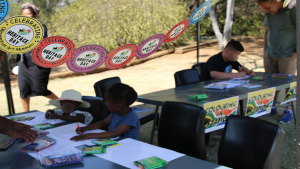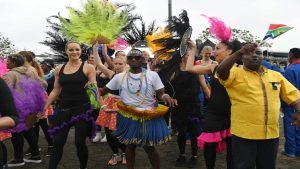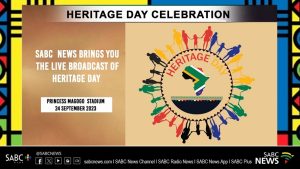Heritage Day reminds us of the rich cultural and traditional diversities we encompass as South Africans. On the 24th of September each year, we are not only encouraged to celebrate our rich variety of cultures, but even more so, to celebrate the cultural diversity that is so often used to create tensions amongst us.
South Africa, the land of 11 official languages very seldom gets the opportunity to recognize the privilege that we have, to be able to encompass all of these cultures means that were able to experience different people from different traditions and share that with one another. This is exactly what heritage day calls for – the celebration for one another.
As a country, we come from a very tumultuous history, and in our daily lives contend with multiple challenges as a result. We are often very focused on the politics of the country, on the socio-economic issues of the country, but we do not interrogate how our heritage relates directly to our identity, as individuals, and as a collective.
In a recent public discourse discussion, the question of the role of gender within heritage was raised. This brought me to examine the role of heritage in our gender dynamics as a society. Our heritage as Africans is not only based on the sentiments of Ubuntu/Botho (I am because you are) but also on the premise that our heritage is inherent to our identities as African people. Yes, we contend with issues of inequality, patriarchy, and misogyny in our heritage, but we also absorb traits of our history, our ancestors, and our culture. All of these traits that we embody are pertinent to who we are as a society. We may be oftentimes divided and fragmented in many of our societal issues, from racial tensions to gender binaries, but we are also progressive and liberal in so many other meaningful ways.
Though it is vital to understand that the heritage we hold today is strongly influenced by our colonial history, by the outside sentiments of patriarchy and misogyny, we are also gradually returning to our pre-colonial ethos that value and empower women in society. We see this through the strong emergence of female-owned businesses and of female leaders in cultural processes such as lobola negotiations. We are advancing, and we need to pat ourselves on the back for the progress that we are making, regardless of our challenges.
We may still be threatened by the toxic phenomena of Gender Based Violence and homophobia, but we as a society are stronger than we were a decade ago, two years ago, and six months ago. We tirelessly and fiercely combat the violence women face in our society, and we fervently call out injustice and make an active, conscious choice to better our society. It is extremely important that this heritage day, we remember our power as a society, we remember that we are different people, we are a diverse people, and that we celebrate this.
But more so, we recognize the power that we embody when we are a collective, and we are consistent in our resolve to shape our nation into the prosperous South Africa that we all desire.
By Tswelopele Makoe a MA (Ethics) student at the University of Western Cape and gender activist.






